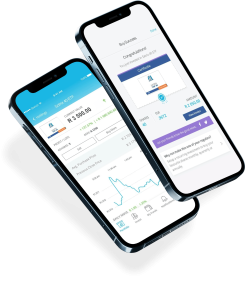Owning a car brings with it a multitude of benefits, including the convenience of personal transportation and the potential to use it for business purposes. However, understanding the distinction between private and business use of a vehicle is crucial for several reasons, including tax implications, insurance coverage, and overall vehicle maintenance. In this article, we’ll delve into the differences between private and business use of your car, the benefits and drawbacks of each, and how to effectively manage both.

Private Use of a Car
Private use of a car refers to using the vehicle for personal activities that are unrelated to work or business. This includes:
- Commuting: Traveling between your home and place of work.
- Leisure Activities: Going on family trips, visiting friends, or engaging in hobbies.
- Personal Errands: Shopping, attending appointments, or any other personal chores.
Benefits of Private Use
- Flexibility: You can use your car whenever and wherever you need without any restrictions.
- Personal Enjoyment: The vehicle serves your personal needs and lifestyle preferences.
- Simplicity in Management: There’s no need to maintain detailed records of mileage or usage, simplifying your administrative responsibilities.
- Simplicity in Management: There’s no need to maintain detailed records of mileage or usage, simplifying your administrative responsibilities.
Drawbacks of Private Use
- No Tax Deductions: Private use does not typically qualify for tax deductions or business-related reimbursements.
- Insurance Costs: Private car insurance can be more expensive than business insurance, depending on the coverage required.

Business Use of a Car
Business use of a car involves using the vehicle primarily for work-related activities. This includes:
- Client Meetings: Traveling to meet clients or business partners.
- Deliveries: Transporting goods or documents related to your business.
- Field Work: Visiting job sites, conducting inspections, or other work-related travels.
Benefits of Business Use
- Tax Deductions: Many jurisdictions allow deductions for business-related car expenses, including fuel, maintenance, and depreciation.
- Reimbursement: Employees using their personal vehicle for business purposes may be eligible for mileage reimbursement from their employer.
- Potential Insurance Savings: Some insurers offer policies tailored for business use that might be more cost-effective than private insurance.
Drawbacks of Business Use
- Record-Keeping: Detailed logs of mileage and usage must be maintained to qualify for tax deductions and reimbursements.
- Wear and Tear: Higher usage rates can lead to increased wear and tear, potentially reducing the vehicle’s lifespan.
- Insurance Complications: Ensuring adequate coverage for business use can be complex and might require additional policies.
Key Differences Between Private and Business Use
- Tax Implications:
- Private Use: Generally does not offer tax benefits.
- Business Use: Allows for potential deductions on expenses directly related to business activities, such as fuel, repairs, and depreciation.
- Insurance Requirements:
- Private Use: Standard personal auto insurance suffices.
- Business Use: May require commercial auto insurance or additional endorsements to cover business activities adequately.
- Usage Patterns:
- Private Use: Includes all non-business-related travel.
- Business Use: Specific to work-related tasks, excluding commuting in most cases.

Managing Dual Usage
If you use your car for both private and business purposes, it’s essential to manage each type of usage effectively. Here are some tips:
- Maintain a Mileage Log: Keep a detailed log of your trips, noting the purpose, date, and mileage. This will help in claiming deductions and reimbursements accurately.
- Separate Expenses: Track your expenses related to business use separately from those for private use. This includes fuel, maintenance, and any other car-related costs.
- Consult a Tax Professional: A tax advisor can help you navigate the complexities of deductions and ensure you’re maximizing your benefits while staying compliant with regulations.
- Review Your Insurance Policy: Ensure your insurance policy adequately covers both private and business use. Speak with your insurer to clarify any ambiguities and adjust your coverage as needed.
Understanding the distinction between private and business use of your car is essential for maximizing benefits and minimizing risks. While private use offers flexibility and simplicity, business use can provide valuable tax deductions and reimbursements. By maintaining accurate records, separating expenses, and ensuring proper insurance coverage, you can effectively manage both private and business use of your vehicle. Whether you’re an employee using your car for occasional work trips or a business owner relying on your vehicle for daily operations, recognizing these differences will help you make informed decisions and optimize the use of your car.
Before making any decisions, consider getting a car insurance quote to ensure you have the right coverage for your specific needs, whether for private or business use. This proactive step can save you time and money in the long run, providing peace of mind as you navigate the complexities of car ownership and usage.

